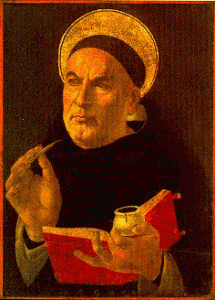Welcome Medieval Philosophy Students!
This page will be one of your important online resources in connection with your enrollment in Medieval Philosophy (Philosophy 302) at San Francisco State University, Spring 2013. On this page you will find course handouts, study questions, reading and paper assignments, online course readings, and videos. All resources are presented in course calendar format. The page will be updated weekly. Make sure you check in each week for new postings. All correspondence should be directed to me at msudduthsfsu@gmail.com, which is the email I use for students. Assignments grades are available on iLearn.
michaelsudduth.com is a new professional website that has replaced my older websites devoted to making available high quality resources in my areas of specialization, which include world religions and philosophy of religion. Parts of the site are still under construction, but you’ll find a lot of material relevant to class readings and topics. Feel free also to subscribe to my bi-weekly blog if you are interested in any of my areas of specialization.
Course Calendar
Week 1: Orientation and Introduction to Vedanta Philosophy of the Medieval Period
January 28 (M): Orientation
January 30 (W): Vedanta Philosophy: An Introduction, Part I
Assignment: View Dr. Nick Sutton videos (below), Hindu Religious Philosophy
Dr. Nick Sutton: Hindu Religious Philosophy, Part 1 of 4
Dr. Nick Sutton: Hindu Religious Philosophy, Part 2 of 4
February 1 (F): Vedanta Philosophy: An Introduction, Part II
Reading Assignment: Shankara’s Crest-Jewel of Discrimination, pp. 1–31.
Introduction to Vedanta (Power Point)
Study Questions on Introduction to Vedanta
Week 2: Shankara and Advaita Vedanta
February 4 (M): Shankara, Crest Jewel of Discrimination, pp. 32–45
Assignment: In addition to the reading assignment above (pp. 32-45), (i) View the Introduction to Vedanta Power Point above, and (ii) View Parts 3 and 4 of Dr. Nick Sutton video (below): Hindu Religious Philosophy. These should all be completed for class on Monday, Feb. 4.
Nick Sutton: Hindu Religious Philosophy, Part 3 of 4
Dr. Nick Sutton: Hindu Religious Philosophy, Part 4 of 4
February 6 (W): Shankara, Crest Jewel of Discrimination, pp. 45–67
February 8 (F): Shankara, Crest Jewel of Discrimination, pp. 67–76
Essay Response Paper #1 (Due on February 11, before 11:50pm)
Study Questions on Shankara’s Crest-Jewel of Discrimination
Week 3: Shankara and Advaita Vedanta
February 11 (M): Shankara, Crest Jewel of Discrimination, pp. 77–99
February 13 (W): Shankara, Crest Jewel of Discrimination, pp. 99–119
February 15 (F): Shankara, Crest Jewel of Discrimination, pp. 119–128
Shankara’s Advaita Vedanta [Power Point] – this is an outline of Shankara’s philosophy of non-duality. Please view by February 15.
Revised Course Calendar Begins Here
Week 4: Ramanuja and Bhakti Vedanta
February 18 (M): ———————————————
February 20 (W): Shankara’s Crest-Jewel concluded
Essay Response #2 (Due on Thursday, Feb. 21, before 11:50pm) – submit through Turnitin on iLearn)
February 22 (F): Ramanuja, Brahma Sutra Bhasya, pp. 8–41
Introduction to Ramanuja’s Vishishtadvaita Vedanta (Power Point)
Study Questions on Ramanuja (Set 1)
Week 5: Ramanuja and Bhakti Vedanta
February 25 (M): Ramanuja, Brahma Sutra Bhasya, pp. 41–71
February 27 (W): Ramanuja, Brahma Sutra Bhasya, pp. 71–81
March 1 (F): Ramanuja, Brahma Sutra Bhasya, pp. 83–101, 115–118
Response Essay #3 (Due Friday, March 1, 2013, before 11:50pm)
Notes on Ramanuja’s Commentary on the Brahma Sutras: the Critique of Shankara
Ramanuja Study Questions (Set 2)
Week 6: Ramanuja and Bhakti Vedanta
March 4 (M): Ramanuja, Brahma Sutra Bhasya, pp. 119–127
March 6 (W): Ramanuja, Brahma Sutra Bhasya, pp. 357–368, 377–382, 395–404
March 8 (F): Ramanuja, Brahma Sutra Bhasya, pp. 436–446, 450–459
Ramanuja Study Questions (Set 3)
Week 7: Ramanuja and Bhakti Vedanta
March 11 (M): Ramanuja, Brahma Sutra Bhasya, pp. 459–461, 465–477
Notes on Ramanuja’s Commentary on the Brahma Sutras: Meditation and the State of Release
March 13 (W): Ramanuja, Brahma Sutra Bhasya, pp. 478–496
March 15 (F): Other Bhakti Vedantins: Madhva, Nimbarka, and Caitanya [Lecture]
Power Point: Madhva’s Dvaita Vedanta
Point Point: The Vedanta of Nimbarka and Chaitanya
Reading Assignment: Edwin Bryant, “Inside the Vedanta Tradition” [online reading]
Week 8: Mid-Term Week and Dionysius the Areopagite
March 18 (M): Mid-Term Exam
[Recommended Reading Assignment as a review for mid-term exam: Brahma Sutra Bhasya, pp. xxvii-lxxix.]
Introductory Outline of Western Medieval Philosophy
Point Point: Plato’s Theory of the Forms
Handout: St. Augustine: Metaphysics of God and Creation
March 20 (W): Lecture on St. Augustine
March 22 (F): Lecture on St. Augustine
Link to Term Paper Assignment – Due April 15, 2013
Week 9: Spring Break
March 25 (M): NO CLASS
March 27 (W): NO CLASS
March 29 (F): NO CLASS
Week 10: Dionysius and Aphophatic Theology
April 1 (M): NO CLASS
April 3 (W): Dionysius the Areopagite, Mystical Theology and the Divine Names, pp. 51-81
April 5 (F): Dionysius the Areopagite, Mystical Theology and the Divine Names, pp. 86-130
Response Essay #5 (Due April 5, before 11:50pm)
Study Questions on Neo-Platonism, St. Augustine, and Dionysius
Week 11: From Dionysius’s Via Negative to St. Anselm’s Perfect Being Theology
April 8 (M): Dionysius the Areopagite, Mystical Theology and the Divine Names, pp. 131-154
April 10 (W): Dionysius the Areopagite, Mystical Theology and the Divine Names, pp. 184–190, 191–201
April 12 (F): Anselm, Proslogion, pp. vii–xi, 1–9
Handout: Anselm’s Ontological Proof Outlined
Handout: Responses to Anselm’s Ontological Proof
Week 12: St. Anselm’s Perfect Being Theology
April 15 (M): “Replies of Gaunilo and Anselm” pp. 28–33, 36–46
Handout: Gaunilo’s “Lost Island” Reductio Proof Outlined
Handout: Possible Responses to Gaunilo’s “lost Island” Objection
Power Point: Alvin Plantinga’s Modal Version of the Ontological Argument
Term Paper Due, online submission due by 11:50pm.
April 17 (W): Anselm, Proslogion, pp. 9–25
April 19 (F): Discussion of Gaunilo’s “Lost Island” objection
Week 13: Maimonides: Jewish Apophatic Theology
April 22 (M): Maimonides, Guide of the Perplexed, “Introduction” (Maimonides), pp. 41–58
Recommended Reading: “Introduction” (Daniel Frank), pp. 1–36
April 24 (W): Maimonides, Guide of the Perplexed, pp. 58–71
Response Essay #6 Due: Provide a comparison and/or contrast between Anselm and Dionysius, due before 11:50pm, April 24, Wednesday. Follow the technical specifications for earlier response papers. Quotes are not necessary.
April 26 (F): Maimonides, Guide of the Perplexed, pp. 71–101
Week 14: St. Thomas Aquinas: Proofs for God’s Existence
April 29 (M): Maimonides, Guide of the Perplexed, pp. 101–106
May 1 (W): Maimonides, Guide of the Perplexed, pp. 106–118
May 3 (F): Maimonides continued
Response Essay #7 Due (before 11:50pm): Is Maimonides’s strongly apophatic (or via negativa) approach to the knowledge of God compatible with affirming (as Maimonides does) that God is the creator of the univerise?
Notes: Your paper should follow technical specifications of earlier weekly response papers. For this paper, you must provide at least one quote from Maimonides.
Below are three supplemental handouts on Islamic Philosophy. These are supplemental. You are only responsible for material that appears in the form of study questions.
Islamic Philosophy Handout – Supplemental
Avicenna’s Theology Handout – Supplemental
Averroes Handout – Supplemental
Week 15: St. Thomas Aquinas: God’s Nature and Attributes
May 6 (M): Aquinas, Selected Writings, “The Nature of Theology,” pp. 50–57 and “Proofs of God’s Existence,” pp. 244–256
May 8 (W): Argument from motion.
May 10 (F): Review Day
May 10: Day of Redemption Deadline: Students who have received NC on one weekly response essay (for either no submission or submission but “no credit”) may submit one missing assignment at this time, before 11:50pm.
Week 16: Conclusion to Course
May 13 (M): Aquinas, Selected Writings, “On the Divine Simplicity,” pp. 291–343
May 15 (W): Aquinas, Selected Writings, “On Creation,” pp. 360–362; “On the Eternity of the World,” pp. 710–717
May 17 (F): Course Summary – Last Day of Class
Week 17: Finals Week
May 20 (M): Final Exam at 10:45am–1:15pm
Special Semester Notices:
There will be no 8th, 9th, or 10th weekly response paper. All students will be automatically credited with full credit for these remaining assignments. This will be a total of 30 points.


 Follow
Follow